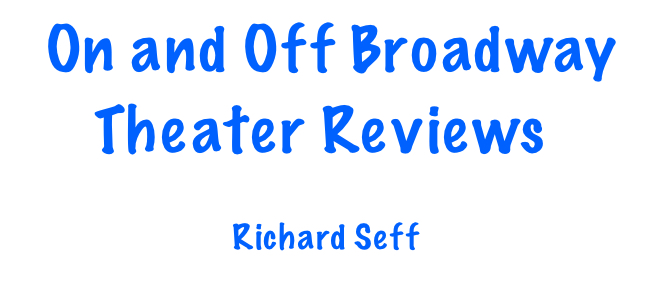This s a tough review to write because this new musical at the Public Theatre is a prime example of what has happened to Broadway as we approach the middle of the 21st century. This was once the medium that attracted young and old to the theaters that let us imagine ourselves, albeit unrealistically, in song and dance. The appeal came first to our parents, and then for many of us early exposure to theater hit us in in a precious spot we didn’t even know was buried within us. I was one of the fortunate ones who came along just in time to love the stories that turned our average lives into something more. For two or three hours we forgot about the Great Depression of the 1930s, the Second World War in the 1940s, the decades of analysis and introspection, the growing pains of adolescence, and so much more. We empathically supported the “Lady in the Dark” who probed her past with the melodic help of a great score by Kurt Weill and Ira Gershwin. We appreciated the humor mixed with angst following teenagers as they said “Bye Bye Birdie” to a young singing soldier. We were wooed and won by the turn of the century “Oklahoma!”. Even as “Sweeney Todd,” the crudest barber and his woman, lusted after power in the dark society of merry old England not so long ago, we applauded them. There were stories, too, that were told in dance, but mostly they were offered with music, lyrics, and choreography going for them–melodies that transported us; lyrics that either clarified the characters that sang them or simply thrilled us with wit and the beauty of the well trained voices that delivered them to us. Not all of these musicals delivered what they promised, and they disappeared, though now and again one would be revived and found it had been ahead of its time, and it found favor second time around. Which brings me to “Hell’s Kitchen” the new musical currently having a go at the Public’s Newman Theatre on Lafayette Street.

The title sets the show in a section of the West Side of Mahattan that is in great disrepair, that strip of the city on Ninth Avenue and west to the Hudson above Times Square that is a grim reminder of the word “slum.” The young folks who live in it still are a rough lot. An enormous company of talented youngsters are on throughout the sad tale that follows for just under three loud, angry hours involving some 28 songs by Alicia Keys, whose credits in the pop musical world are phenomenal. For this stage piece, she wrote music, lyrics and arrangements.There is also a book by Kristoffer Diaz, but with 28 songs and many dance creations by Camille A. Brown, there is room only for the most sketchy scenes, most of which involve two leading central characters. In an attempt to be “now,”it’s been decided to list the cast alphabetically. As I hadn’t known any of this cast before seeing “Hell’s Kitchen,” it became impossible to determine who played what.
The company cast list mentions a Jersey,, a Jessica, a Davis, or simply an Ensemble, but after only the one viewing, I can’t comment on any performances, for there is no way to know who sang what. The listing of the musical numbers, with titles like “River,” “Fallin’,” “No One,” “Work On It,” ”Heartburn,” and “Kaleidoscope” don’t let us in on who sings them.The Who’s Who In The Cast, usually helpful, is useless because once again everyone is listed alphabetically with the actors playing the leading roles lumped together with understudies, alternates and members of the Ensemble.
Alicia Keys has won fifteen Grammy Awards as singer, song writer, musician, producer, and founder of Keys Soulcare. She is considered the #1 certified female R&B Artist of the millennium. Her fans and following were in the audience at the matinee that included me, and their response was tumultuous. It did not include me, or several of those seated near me, but we’ll just have to see if this wild collection of “he/him” and “she/hers” (which is how they are listed in the Who’s Who In The Cast) prevail in the future of the Musical Theatre on and off Broadway. Over amplified as they are, with arrangements that make most of the solos sound like cabaret tunes, I could not get through all of them and their vocal tricks that obscured every lyric.
